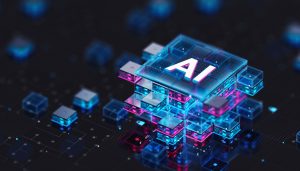Hey, Tech enthusiast! Your Daily Dose of Tech This Monday is here @DawentsIT …We Inspire To Deliver!
Your Daily Dose Of Technology News – September 01, 2025.
1. – AI continues to dominate Headlines: companies are launching new models and tools, regulators and governments are proposing oversight and safety rules, and major chips and infrastructure players are announcing upgrades to support large models.

– Hardware refreshes and chip competition: new AI accelerators and next-gen GPUs/NPUs were highlighted, along with continued U.S.–China tensions affecting supply chains and export controls.
– Antitrust, privacy and content-moderation enforcement remain active — regulators in multiple countries are pursuing actions or policy measures against big tech platforms.
– Consumer and developer ecosystems: major platform updates and developer conferences wrapped up in the past week, with follow-on product launches and SDKs appearing.
In Other News:
2. OpenAI and Anthropic / Generative AI Product Launches and Policy Actions:
– OpenAI released an update to its GPT-4o family (often referred to as GPT-4o Turbo in leaks) with improved safety filters, lower latency on multimodal inputs, and new developer pricing tiers aimed at making custom model fine-tuning and embedding generation cheaper for startups. OpenAI also announced an expanded “tooling” program that gives vetted partners access to safe code execution and extended context windows for enterprise customers.
– Anthropic introduced a refreshed Claude model series emphasizing steerability and “constitutional” safety constraints. The company also launched an enterprise suite for regulated industries (finance, healthcare) with on-prem and private-cloud deployment options.
– Regulators in the EU and U.S. signaled renewed scrutiny of model training data: the EU’s Data Protection Board issued clarifications on lawful bases for large-scale scraping of public web content, and U.S. Senators proposed draft language to require disclosures on datasets used to train foundation models and a mechanism for consumers to opt out of having their personal data included.
3. Big Tech Earnings, Product and Organizational News:

– Apple confirmed supply-chain ramp for next-generation mixed-reality hardware and announced a developer toolkit update for visionOS with better multitasking APIs and AR spatial computing primitives. Apple also highlighted progress on a new in-house AI stack intended to run on custom silicon for on-device assistants.
– Meta introduced updates to its AI assistants across WhatsApp and Messenger, plus generative video tools aimed at creators. Meta also previewed improvements to its advertising systems leveraging multimodal models while affirming new content-safety policies.
– Microsoft expanded Copilot integrations across Windows, Office, and GitHub with offline-capable models and announced a partnership with a major chip vendor to create specialized Copilot inference hardware for enterprise customers.
– Google rolled out a refined Gemini model version with better coding and math performance, plus new privacy controls that let users restrict what data can be used to personalize model responses. Google also announced updates to Bard enterprise and partnerships to integrate Gemini into third-party apps.
4. Security Incidents and Privacy:
– A supply-chain attack was reported affecting a third-party update server used by several mid-size SaaS vendors; incident response teams urged patching and rotating credentials. No major consumer data breaches were reported, but some corporate customers faced brief outages.
– Researchers disclosed vulnerabilities in widely used IoT device firmware families; coordinated disclosure led to vendor patches, but users were warned to update devices promptly.
5. Startups, Funding and Layoffs:
– Funding flows continue strongly into AI startups focused on vertical applications (healthcare AI, legal automation, drug discovery) and developer tooling (vector databases, retrieval systems). Several seed/Series A rounds raised between $10–80M.
– Some consumer tech startups announced layoffs or pivots as investors favor enterprise AI monetization; these moves reflected a broader funding trend toward higher-margin AI services.
Odds And Ends:
6. Standards, Research, and Open Source:
– A consortium of universities and industry players announced an open benchmark suite for evaluating multimodal reasoning, robustness, and factuality, intended to serve as a standard for model auditing.
– Open-source model projects continued to gain traction with optimized runtime stacks and community-driven fine-tuning recipes; several projects published new checkpoints that show improved instruction following while lowering compute costs.
7. Telecoms and 5G / Edge:
– Telecom operators in Europe and Asia announced multi-year AI infrastructure partnerships with cloud providers to deploy inference at the network edge for low-latency AR/VR and industrial IoT use cases. Trials emphasized private 5G + on-prem inference nodes.
– Samsung previewed mass-market 5G chipset improvements enabling more efficient on-device AI for next-generation smartphones.
8. Regulatory and Antitrust Moves:
– The EU’s Digital Markets Act (DMA) enforcement advanced as regulators opened a consultation on applying DMA obligations to AI tool distribution and model marketplaces. Several large platform operators face new compliance timelines.
– In the U.S., the FTC and Department of Justice continued investigations into major tech acquisitions and business practices; one high-profile case involves alleged self-preferencing in cloud services procurement.
– China tightened export controls for advanced AI chips and related development tools, expanding earlier lists and clarifying licensing requirements — a move likely to further complicate cross-border AI supply chains.
9. Chipmakers and AI Infrastructure:
– NVIDIA announced a mid-cycle update to its data-center GPU lineup — new H4X-series accelerators optimized for high-throughput inference and sparse attention models. NVIDIA also previewed software updates to TensorRT and cuDNN to better support mixture-of-experts and retrieval-augmented architectures.
– AMD introduced a new MI-series accelerator targeting generative AI inference workloads with competitive performance-per-dollar claims versus NVIDIA for certain model sizes. AMD emphasized open standards (ROCm) and partnerships with hyperscalers.
– Intel unveiled an AI NPU family for edge and telco use cases plus a roadmap for next-generation XPU integration across CPU, GPU, and NPU components. Intel reiterated commitments to on-shoring some manufacturing in the U.S. to navigate geopolitical risk.
– AWS, Google Cloud, and Microsoft Azure all announced pricing and performance improvements for hosted model inference and new instance types with denser accelerator counts and NVLink-like interconnects — aimed at lowering the costs of running LLM inference at scale.
Summary:
– Automotive: several EV makers revealed software updates that add driver-assist features and cabin generative-AI assistants; regulators warned that liability and safety standards must keep up with faster software delivery cycles.
– Education: universities updated policies on student use of generative AI in assignments; several campus deployments of institution-wide AI tools began pilot phases.
– Climate tech: AI-driven optimization startups secured partnerships with utilities to reduce data-center energy consumption through smarter workload scheduling.
If you need a summary on any specific topic or more detailed information on emerging tech trends, feel free to ask us @DawentsIT or visit our website at www.dawentsit.com
Follow us for updated news, articles, and videos. Read more on http://www.dawentsit.com/ #Technology #DawentsIT #TechnologyNews #Tech #AI #Privacy #Regulation #OpenAI #AWS #Anthropic #GPT4oTurbo #GPUs #NPUs #AllThingsTechnologyNews #AllThingsTechnologyNewsToday #WeInspireToDeliver
